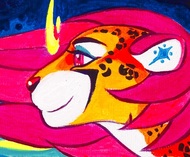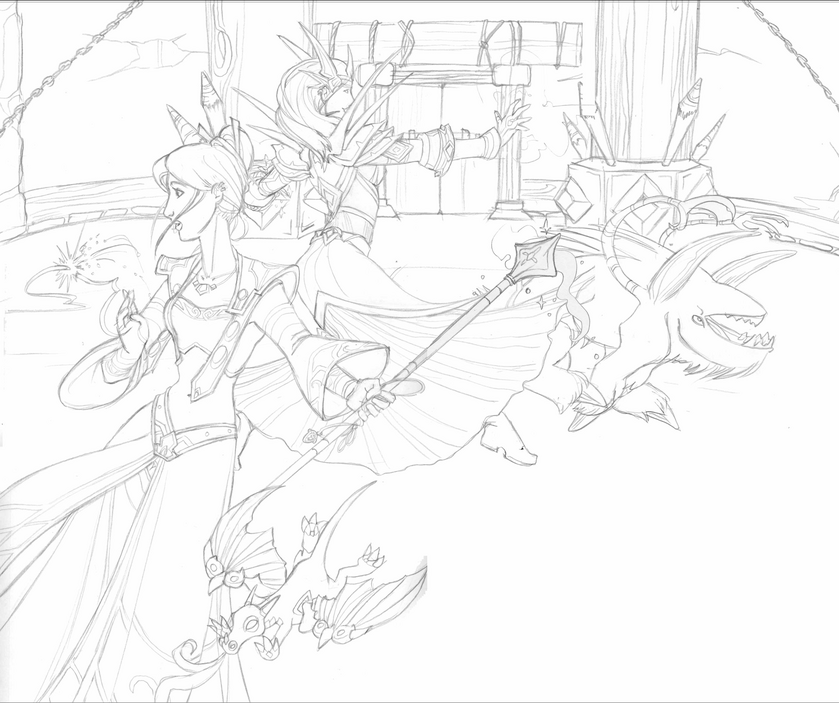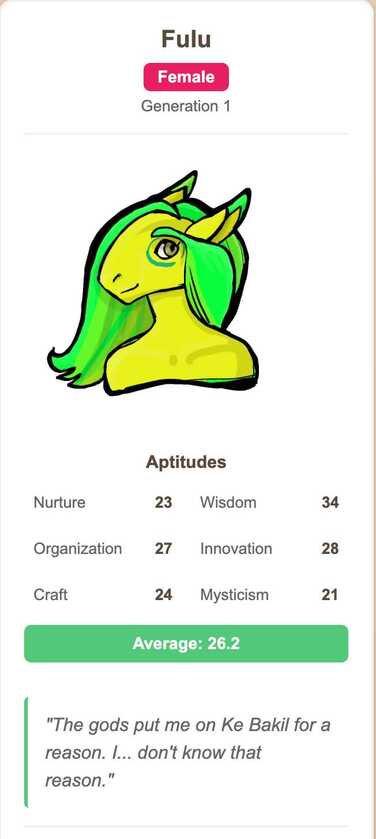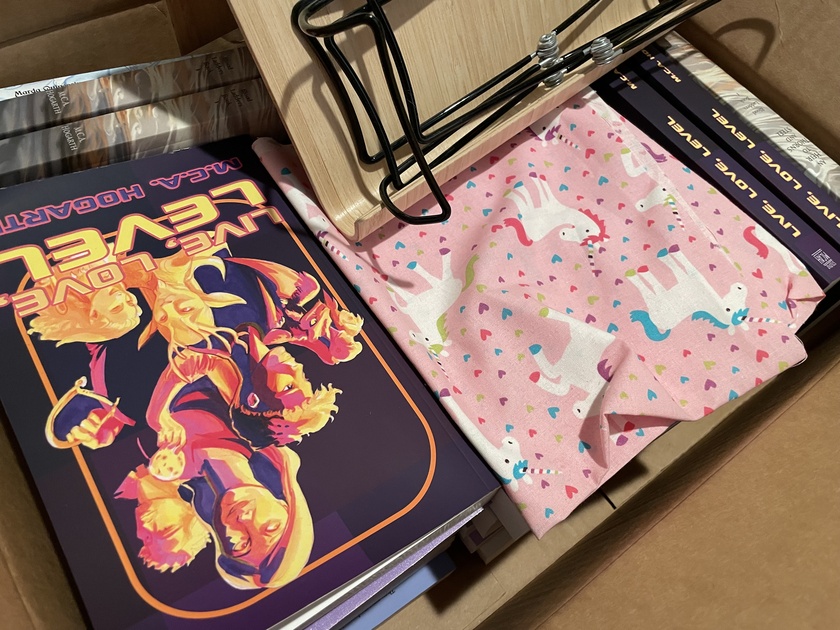I am sitting on a bench, looking out over a pond, when he slides onto alongside me, and even without looking at him I sense the tensile energy of him, so like his father’s. But there are deep waters there, more like his namesake’s. I can say that, can’t I? It is his name. “Shame.”
“Datyani,” Kef says cheerfully. “I’m glad you go outside now and then. Exercise is good for you.”
That’s very specific in Ai-Naidari: not ‘you’ as in ‘all people,’ but me in particular. I snort. “Is this Correction, then?”
“I don’t know,” he answers, eyes sparkling. “Is it?” When I laugh, he grins, and it’s easy. “Now I wonder if you know the answer to that question.”
“I don’t,” I admit. “I can’t imagine accepting Correction from you. I saw you grow up.”
“Which is why I can only do it with a child’s blunt honesty, a child’s unexpected perspective, and a child’s transparency… things that remind you of the moments when your own child brought you up short, made you question your certainties, really think about how society works.” He wiggles his brows so much like Ajan that I laugh again. “This isn’t an act. But few people see Shame this way, the way you need to.”
“You’re good at this job,” I say admiringly.
“What else? I was trained by Kor Nai’Qevellen-osulkedi.” He lets the ebullience fade, and I see then a glimpse of the Shame that contemporary Ai-Naidar must see: the siren with the malleable, singing voice, and the sinewy strength in the limbs, and the intensity that feels like the point of a match held against a wick. “But you were thinking of other things than my role as Shame.”
“You have a sister and brother,” I said. “Much younger than you.”
“That’s true.”
“Is it strange?”
He smiles. “No. We’re like that… big families, odd-for-aunera generational gaps. If anything, it’s strange that I don’t have more siblings.”
“The fire,” I guessed.
He nods. “The fire will always live in those of us who witnessed it. To some extent or another. Some more than others. But many of us it damaged, and emethil suffered.”
Emethil is the chain of generations, and hearing him say the word I can sense it: how the disaster that befell the capital of Kherishdar disordered so many people that they could not act the way they’d been taught to. Like Kor, they feared to give more hostages to fate… or they lost someone and could not move on from it.
“We are the ashlishin,” he says, and for a moment I hear ajzelin, but no… it becomes clearer when I focus on it. Ash-lishin. The people who were burned or etched. “The children most of all. People like me and Shan and Aish.”
The new Exception must be one of them. “Is that why the Exception is so different from the old Exception? Haraa said she’s less rude, more whimsical and erratic.”
“Maybe,” Kef says, smiling. “Who can say? The Exception is the Exception. She is always singular.”
I glance at him, see the young man who grew from the child I met in Ajan’s arms as a baby. Smiling, I say, “Does she let you Correct her?”
“Shame never Corrects the Exception, because she cannot err. We find her, that’s all.” He grins. “But I do talk to her the way I do to you, datyani. As if I were her son.”
“Is she so old?” I ask.
“No,” he says. “But it irritates her, and that amuses us both.”
I shake my head, imagining it.
“I like to talk to you,” he says, thoughtful. “With you, I remember a little what it was like before the fire. I laugh the way my sister and brother do, who never knew it.”
“Did it make you who you are today?” I ask.
His father would have hopped onto the bench and danced off it. He slides away the way he arrived, without drama. Like a friend, because Shame is a friend, and Kef in particular is family. “A thing’s ending is implied in its every moment of existence, yes, datyani? Ishan. You should look at the pond.”
“And walk,” I guess.
“And walk.” A twinkle in those peachy-rose-colored eyes. “It’s good for you.”
I am Corrected. Smiling, I get up and amble on.


















